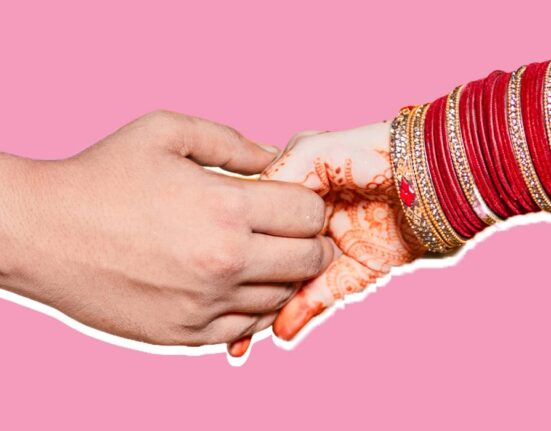The world of love and relationships has never stayed the same for too long. Every new generation comes with new ideals, new expectations, and new forms of connection. But when it comes to Gen Z, there is something transformative. Gen Z is the generation born roughly between the late 1990s and early 2010s. This generation has grown up with smartphones, swiped through adolescence on dating apps, and entered adulthood in the midst of a mental health revolution.
Therefore, it is no surprise that their view and experience of romantic relationships are turning out to be drastically different from what has been before. Gen Z is doing more than simply tweaking the relationship rulebook. They are tearing out the old pages, scribbling in the margins, and starting a new chapter that feels more emotionally aware, fluid, and intentional.
Emotional Transparency Over Suppression
One of the most prominent shifts Gen Z is making is its emphasis on emotional transparency. As compared to the previous generations that mostly avoided difficult conversations or hid vulnerability, Gen Z is prioritising emotional intelligence and communication. They are more into using the language of therapy—terms like “boundaries”, “attachment styles”, “emotional labour”, and “gaslighting” are now found in everyday conversations.
Gen Z is more likely to seek mental health support than any previous generation (Twenge et al., 2020). This has impacted how they approach relationships. They are less tolerating of emotional unavailability and more desiring of clarity, safety, and healing. The ability to say, “This doesn’t meet my emotional needs” is not seen as a weakness. It is a skill. And many Gen Z individuals are not only open to having these conversations but also expect them to be a part of any healthy relationship dynamic.
Read More: Is Your Partner Emotionally Unavailable? 7 Signs to Consider
Rewriting Commitment and Monogamy
Through the eyes of Gen Z, commitment looks different. The idea of finding “the one” and staying with them forever is not as appealing as it once seemed. This does not mean that Gen Z does not value love or long-term connection. Rather, they are more open to defining commitment on their own terms. Further, a lot of people question traditional monogamy. Research has shown that non-monogamous and open relationships are gaining traction among younger generations (Astle et al., 2023). For many, this openness is not just about sex. It is about honesty, freedom, and a rejection of the possessiveness that sometimes hides behind conventional romantic models.
The narrative is shifting from “you complete me” to “you complement me”. Relationships are seen more as partnerships between whole individuals rather than unions meant to “fix” or “fill” one another. Moreover, Gen Z does not feel the urgency to “settle down” by a particular age like the previous generations did. They are prioritising self-discovery, career, and mental well-being before committing to serious relationships, or even choosing not to commit at all.
Read More: The Psychology of Falling in Love
Impact of the Digital Era
For Gen Z, growing up online has shaped the way they experience love and relationships. Apps like Tinder, Bumble, and Hinge have taken the place of traditional meeting spots. Many now build emotional bonds through chats and calls before ever seeing each other in real life. This transformation from face-to-face to screen-to-screen connection has changed the working of trust and attraction work. It is not just about love at first sight anymore.
Rather, it is about how compatible two people are in conversation, how aligned they are in values, and how well they understand each other. Moreover, the internet has not only changed how people meet, but it has also caused a shift in how relationships grow and sometimes fall apart. Terms like “soft ghosting,” “situationships,” and “breadcrumbing” have become part of everyday dating language. While these patterns can be emotionally messy, they have also pushed Gen Z to talk more openly about things like boundaries, communication, and mutual understanding.
Read More: The Importance of Mutual Understanding in Relations
Identity, Fluidity, and Inclusivity
Another way that Gen Z is reshaping relationships is through their acceptance of fluid identities. With traditional gender roles not holding the same weight anymore, questions like who pays on a date or who makes the first move are no longer answered by outdated rules. Instead, they are openly discussed. A Pew Research Centre study (2025) found that Gen Z is the most gender-diverse and LGBTQ+ inclusive generation to date.
This inclusivity is witnessed in how relationships are formed and understood. With an openness to experimentation, growth, and change, labels are not more important than mutual respect and understanding. This also allows Gen Z to make room for authenticity. With less pressure to conform to traditional roles, people are more comfortable expressing their real self, and their wants and needs. This honesty, though sometimes messy, leads to relationships that reflect real human complexity.
Read More: Is there Adequate Research on LGBTQIA+ in India?
Role of Social and Political Values in Romance
Although this may seem unusual to older generations, Gen Z also takes into account their social and political values when making decisions about romantic relationships. Shared values are not just a “plus”. They can be deal-breakers. From climate activism, racial justice, feminism, to LGBTQ+ rights. These are issues that matter deeply to Gen Z and hence affect their preferences in dating, too.
A 2025 study by YPulse showed that 69% of Gen Z respondents said they would not date someone who did not share their political beliefs. Thus, they want to build relationships with people who share their worldview. And people who are willing to have difficult, meaningful conversations about the condition of the world. This leads to deeper connections rooted in shared purpose, not just superficial attraction.
Read More: Why Some People Struggle More in Relationships
Conclusion: Conscious Love
Gen Z is rewriting the relationship script with both boldness and tenderness. Neither are they afraid to walk away from what does not serve their well-being and needs, nor are they rushing into relationships just to tick boxes. They are questioning long-held assumptions, welcoming fluidity, and demanding emotional honesty. According to Gen Z, relationships do not have to look like the past to be meaningful.
They just have to feel real, mutual, and human. And their way to do that is by exploring new lingos, new relationship models, and intertwining values with vulnerability. Thus, we can conclude that Gen Z is not less interested in love. Rather, they are more interested in love that is conscious. Love that communicates, respects and evolves. Love that gives you the space to grow, and not pull you down.
FAQs
1. Why is Gen Z approaching relationships so differently from previous generations?
Gen Z has grown up during a time of rapid technological change, greater mental health awareness, and widespread social activism. These factors have shaped their values around emotional communication, inclusivity, and self-awareness, making them more open to redefining what love and commitment look like.
2. Are Gen Z less interested in long-term relationships or marriage?
Not necessarily. Many Gen Z individuals still value long-term relationships, but they prefer to enter them with more intention and clarity. They’re also more willing to delay marriage or skip it altogether if it doesn’t align with their personal goals or beliefs.
3. What role does therapy or mental health language play in Gen Z relationships?
A significant one. Gen Z often uses therapy-informed language to talk about boundaries, attachment styles, emotional labour, and trauma. This helps them build healthier, more communicative relationships—but it also raises the bar for emotional maturity in partnerships.
4. Is Gen Z more likely to be in non-traditional relationship models?
Yes. Gen Z is more open to exploring non-monogamous, queer, and fluid relationship models. They prioritise honesty and consent over conformity, making them more likely to discuss alternative forms of love and connection.
5. How do digital platforms affect Gen Z’s romantic relationships?
Dating apps and social media are integral to how Gen Z meets and connects. While these platforms offer more opportunities for interaction, they also introduce challenges like ghosting, emotional detachment, and superficial judgments. Gen Z is actively navigating how to build authentic connections in a digital-first world.
References +
Astle, S., Langin, K., Anderson, J. R., & Moors, A. C. (2023). Understanding Relationship labels: A content analysis of consensual non-monogamous relationship agreements. Sexuality & Culture, 28(2), 710–732. https://doi.org/10.1007/s12119-023-10141-8
Mitchell, T., & Mitchell, T. (2025, April 24). Generation Z looks a lot like millennials on key social and political issues. Pew Research Center. https://www.pewresearch.org/social-trends/2019/01/17/generation-z-looks-a-lot-like-mille nnials-on-key-social-and-political-issues/
Twenge, J. M. (2020). Increases in depression, Self‐Harm, and suicide among U.S. adolescents after 2012 and links to technology use: possible mechanisms. Psychiatric Research and Clinical Practice, 2(1), 19–25. https://doi.org/10.1176/appi.prcp.20190015
YPulse. (2025, March 20). Dating & Relationships Report – YPulse. https://www.ypulse.com/report/2025/01/08/dating-and-relationships-report/













Leave feedback about this